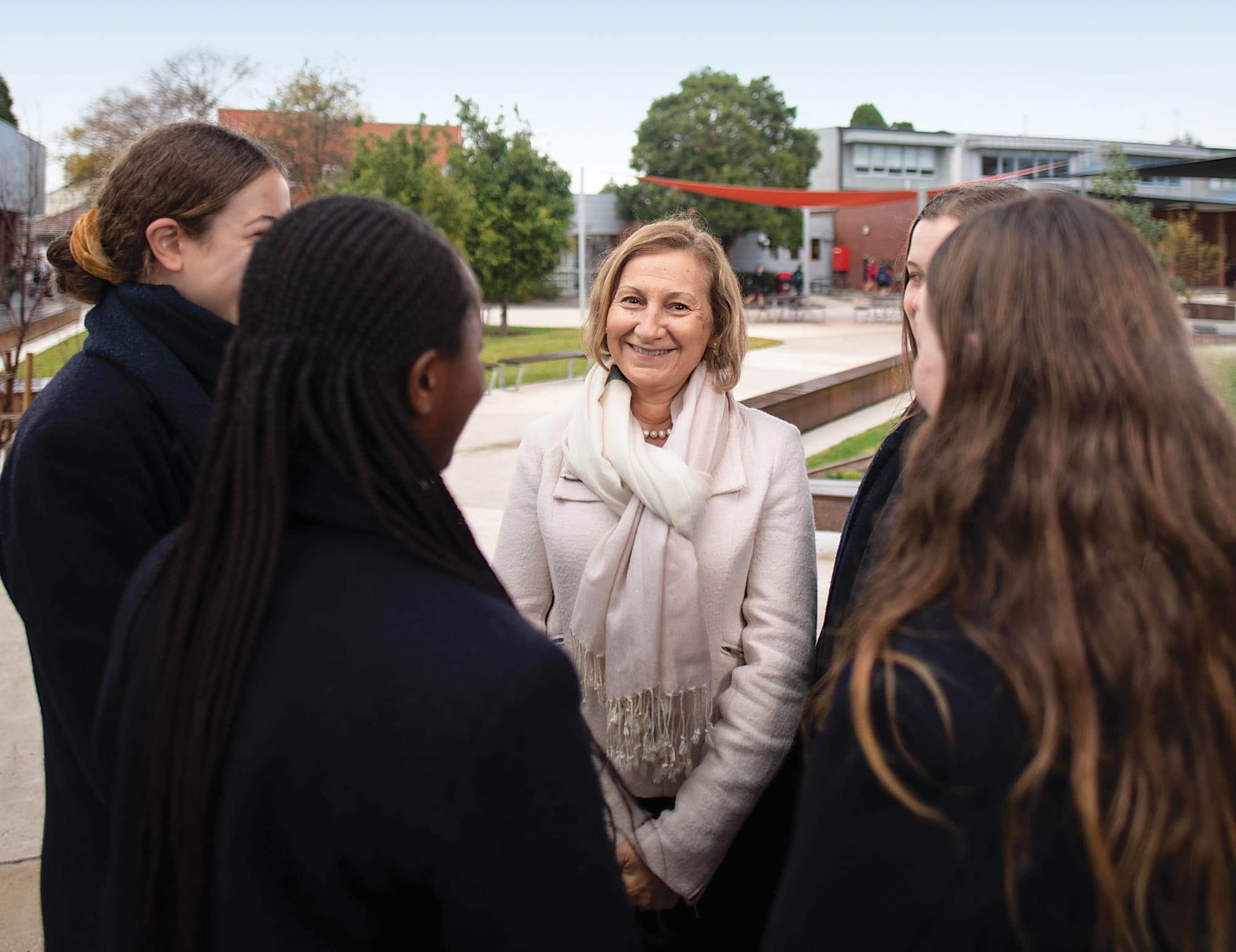
In summary:
- In teaching and learning, a clear gap exists between research evidence and practical application.
- Monash University's Q Project (Quality Use of Evidence Driving Quality Education) champions evidence-use to improve teaching practices and learning outcomes.
- The five-year study is the first of its kind ever conducted in Australia and will directly benefit 80,000 students and 200 schools across the country.
As principal of one of Victoria’s most acclaimed public secondary schools, Pitsa Binnion is always on the lookout for ways to improve teaching practices and learning outcomes for her students. The key, though, is finding the evidence to support new ideas and approaches.
It’s Binnion’s constant striving “to do things better” that has not only been instrumental in building the reputation of her school, but also motivated her to become involved in Monash University’s Q Project.
Launched in November 2018 – in partnership with the Paul Ramsay Foundation – the Q Project is a five-year study that aims to help schools improve teaching and learning practices through the implementation of research-based changes or innovations.
Binnion’s McKinnon Secondary College, in Melbourne’s southeast, is one of 100 Australian schools teaming up with Monash’s Faculty of Education, with the aim of using an evidence-informed approach for more effective teaching.
'If you’ve got a project where the ultimate goal is to connect research-based evidence with actual change in the classroom that’s going to benefit a whole generation of students, then that’s a powerful thing.'
This can range from determining optimum class sizes and composition, to adding value to particular teaching techniques, such as collaborative learning or peer tutoring. It can also underpin strategies to improve outcomes by addressing behavioural issues, such as bullying, or guiding interventions to address key educational challenges such as disengagement, literacy, participation in physical education and general student wellbeing.
Building a framework for educators
The Q Project aims to work with schools that want to more effectively use research-based evidence to drive improvement in the classroom. A key aspect will be the development of a professional framework, along with case studies of how advanced teaching practices or methods have been used successfully. This will help educators in schools nationally to apply outcomes from the Q Project.
“We’re always looking to improve learning outcomes for our students by implementing new ideas that appear to work well in other schools, but often there’s no actual evidence that something’s going to work,” says Binnion, who’s been the principal at McKinnon Secondary College since 2008.
“So, when I heard about the Q Project, I was very keen to be involved. For educators to be able to take evidence-based research and apply it in the classroom is of fundamental importance. It enables us to focus on what’s actually going to work to bring about better outcomes for our students and for our schools.”
Binnion, who completed a Bachelor of Arts and Diploma of Education at Monash, is involved in the project as a steering committee member – helping to oversee the project and the way it’s being managed and implemented across participating schools – and as a participating school representative.
She believes the project, the first of its kind to study research use in primary and secondary classrooms in Australia, has the potential to bring about game-changing outcomes for her school and others across the country.
“I think every school community has its own unique challenges and goals, but at the end of the day we’re all in the same business,” she says.
“I think if you’ve got a project where the ultimate goal is to connect research-based evidence with actual change in the classroom that’s going to benefit a whole generation of students, then that’s a powerful thing.”





